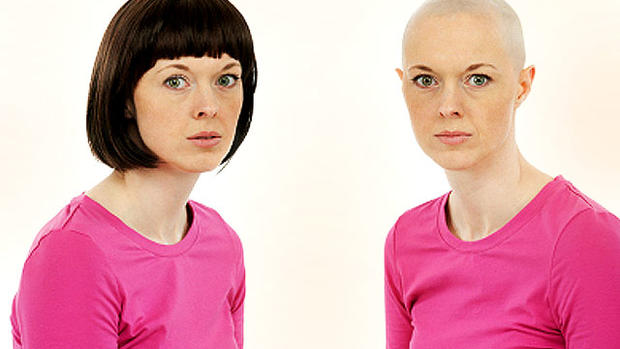DHEA hormone eases menopausal hot flashes, boosts sex life: Is it safe?
(CBS) Has hormone replacement therapy (HRT) met its match for menopause?
For years the therapy - a combination of estrogen and progesterone hormones - has been the standard treatment for women's menopausal symptoms such as hot flashes, sexual discomfort, and mood swings. But since 2002, several studies have tied HRT to increased risk for heart disease and breast cancer.
PICTURES: 25 breast cancer myths busted
A new study suggests low doses of a different hormone, dehydroepiandrosterone (DHEA), may provide menopausal women an alternative treatment option.
For the year-long study, published in the Dec. issue of the International Menopause Society's journal Climacteric, Italian researchers tracked 48 menopausal women who were experiencing troubling symptoms. Twelve of the women were given low doses of DHEA, 12 were given standard hormone replacement therapy, 12 were given a steroid, and 12 took vitamin D and calcium because they wanted to avoid hormones. After a year, all the women were surveyed about their menopause symptoms.
What did the researchers find? Women in both the DHEA and HRT groups showed improvement in their menopausal symptoms, while those taking vitamin D and calcium saw no improvement. But women taking DHEA saw significant improvement in their sex lives, the study found. The women taking DHEA reported big increases in both sexual interest and activity.
"This is the first time that a controlled trial has shown that low doses of the hormone DHEA may be able to help women deal better with menopausal symptoms, as well as helping their sex life," study author Professor Andrea Genazzani, director of the department of obstetrics and gynecology at the University of Pisa in Italy, said in a written statement. "The work shows that DHEA has potential, especially for those women who may have problems in taking more conventional HRT."
But is DHEA just as risky as standard hormone replacements for menopause?
"We must bear in mind that this is a pilot study with a small sample," endocrinologist Dr. Anna Fenton, co-editor of Climacteric, told Reuters. "We can't yet say that this study means that DHEA is a viable alternative to HRT, but ... we should be looking to do larger studies to confirm these initial results."
WebMD has more on menopause.

